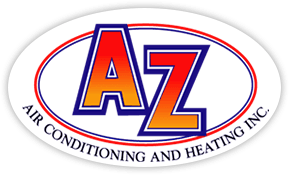
If you’re uncertain whether your Los Angeles home has bad indoor air quality (IAQ), it probably does.
We are indoors a lot. In reality, we’re inside up to 90% of the time, according to the U.S. Environmental Protection Agency. And the air inside houses could be 2–5 times more contaminated than outdoors, which may create long-term health problems.
Most Common Causes of Poor IAQ
We’ve put together a list of the most common sources of bad IAQ, the problems they make and how you can take care of these indoor air pollutants. If you’re troubled by the air inside your residence, we suggest consulting with a expert like AZ Air Conditioning and Heating about which products are a good fit for your home.
Volatile Organic Compounds
Volatile organic compounds, or VOCs, are vapors emitted from common household items.
They’re found in paint and stains in addition to:
- Furniture
- Carpet
- Building materials
- Cleaning products
- Cosmetics
- Air fresheners
- Candles
When these fumes accumulate indoors, they might irritate your eyes, nose and throat. They might also create headaches and nausea. Regardless of whether your house is in a rural or industrial area, an EPA study found indoor levels of these pollutants can be 2–5 times higher than the air outside.
Always adhere to the manufacturer’s instructions when painting or cleaning. Opening a window can help vapors dissipate faster.
Air purification systems can also better your air. This equipment partners with your heating and cooling equipment to improve indoor air. When hunting for a system, ensure it’s specifically made to eliminate VOCs.
Dust and Pet Dander
Dust and pet dander can aggravate health problems like asthma and allergies, especially when it continually gets moved by your house’s comfort equipment. While you can vacuum more routinely and buy an improved air filter, an air filtration system might be a better match.
This equipment hooks to your comfort equipment to deliver mighty filtration. Some types have hospital-level filtration for getting rid of particles and bioaerosols.
Persistent Odors
Modern homes are securely sealed to boost energy efficiency. While this is fantastic for your energy costs, it’s not so good for your IAQ.
Musty odors can stay around for a greater amount of time because your house is pulling in less fresh air. Since keeping your windows open throughout the year isn’t a possibility, here are two methods you can make your indoor air smell fresher.
An air purification system is placed in your HVAC system to eliminate odors before they recirculate. Find one with a carbon filter and the power to wipe out damaging VOCs. These units can also help keep your family healthy by wiping out most bacteria and normal allergy triggers like pollen and mold spores.
A ventilation system removes musty indoor air and substitutes it with clean outdoor air. There are two kinds of equipment (heat recovery and energy recovery), so call our professionals for more details on which solution is best for your residence.
Unsteady Humidity
It’s critical your residence’s humidity keeps even. Air that’s too humid can create mold, while dry air can cause respiratory issues.
Our professionals suggest 40–50% for top comfort. To keep yours in balance, think about getting a whole-home humidifier or whole-home dehumidifier with your HVAC system.
Instead of having to drag a humidifier from room to room, this equipment delivers balanced humidity across your house.
Carbon Monoxide
Carbon monoxide is colorless gas you can’t smell. It’s a byproduct of insufficient combustion in fuel-burning equipment, like gas heating systems, water heaters or fireplaces.
It presents an extreme health risk. In small levels, it can lead to flu-like sickness like headaches and nausea. It can be deadly in big levels.
We advise annual furnace maintenance to double-check your equipment is working properly. This service allows our specialists to pinpoint troubles before they get bigger, including malfunctions that can cause carbon monoxide leaks.
The best method to keep your house free of carbon monoxide is to install detectors. These alarms should be on each floor near bedrooms and living spaces.
Enhance Your House’s Air Quality with the AZ Air Conditioning and Heating Specialists
Aware that your home has inferior air quality but not sure how to improve it? Or unsure which solution is a good fit for you? Give our kind HVAC pros a call at (877) 559-6081 or contact us online today. With free estimates and expert assistance, we’ll help you choose the best solution for your family and budget.
